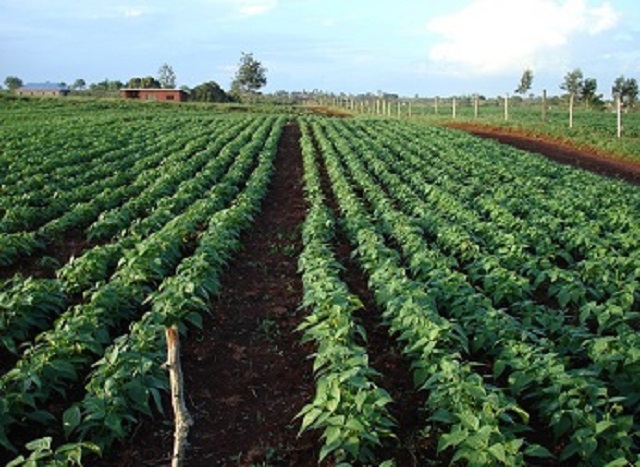
The Sunday News

Dumisani Nsingo, Senior Farming Reporter
A GUARANTEED market for fresh vegetables has managed to enable most horticulture farmers in Matabeleland North to sustain the viability of their agricultural enterprises in the wake of the prevailing cash crunch in the country.
A number of farmers who spoke to Sunday Business in Umguza District, Matabeleland North Province said cropping of horticultural produce has enabled them to sustain their enterprises.
Umguza is Matabeleland North’s prime farming area and major supplier of fresh vegetables in the province as well as Bulawayo.
Horticulture was once a preserve for large scale commercial producers. However, in today’s era of diversification of agriculture, farmers are now shifting from traditional subsistence agriculture to commercial agriculture.
Traditionally, smallholder farmers produced food crops, becoming the custodians of food security in the country, while their established counterparts concentrated on cash and export crops.
One of the farmers Mr Zeblon Moyo of Umguza Lots irrigation scheme said most horticultural producers were realising meaningful returns from their produce despite the liquidity crunch and low disposable income among consumers.
“These days I am realising some meaningful returns from selling onions and cabbages. Although horticultural produce is susceptible to pests this time around there weren’t any outbreaks and even stripes which normally attack our onions didn’t trouble us as I only administered pesticides once.
“I am also grateful that I managed to rake a profit from the rape vegetables I planted in March and started selling in May. I think I marketed it at the opportune time because I managed to recover my inputs costs in no time and made a huge profit,” said Mr Moyo.
However, Umguza Irrigation Farmers Association chairman Mr Antony Dube said although vegetable production was lucrative farmers were feeling the brunt due to the liquidity crunch.
“We are producing a number of horticultural produce but the market isn’t as lucrative as we wish it to be, largely because of liquidity crunch to the extent that the buyers are more of determining the price. Before the liquidity crunch horticultural production used to be a very lucrative venture,” said Mr Dube.
Matabeleland North Department of Agricultural Technical and Extension Services Agritex horticulture specialist Ms Teggie Mpofu said there was need for vegetables to be quickly disposed to avoid glut or to be properly processed through value addition.
Farmers should diversify by way of producing different crops or adding value to their produce. For instance those with tomatoes can invest in purchasing machinery for the manufacturing of tomato puree or even dry the fruit for export.
“We also call on farmers to form associations where they will be able to share information on which crops to grow so as to guard against losses due to a glut of a certain produce on the market, this tends to have a drastic effect on the price,” she said.
Ms Mpofu encouraged farmers to be observant of the seasons in which particular crops tend to thrive.
“Spinach tends to grow well during this season. It’s one of the most lucrative leaf vegetables which farmers should grow because it has a life cycle of up to six months and can produce over 1 000 leaves per square metre. Carrots can be grown right throughout the year and green beans tend to do well during this (summer) season while onions are also in abundance around this period,” she said.
Ms Mpofu however, said farmers should guard against cropping leaf vegetables such as covo, chomolia and rape as they are susceptible to pests at this period.
“At the moment vegetables like covo, chomolia and rape aren’t doing well, these tend to thrive during the winter. During the summer these vegetables are faced with numerous challenges especially with regards to pests.
“Pests multiply at a faster rate during the summer season and farmers struggle to eradicate them and the quality of the produce won’t be good, in most instances the leaves will have tiny holes after being damaged by pests,” she said.
The major horticultural crops grown in Zimbabwe include tomatoes, onion, cabbage, kales, baby corn, mange tout peas, pepper, cauliflower and broccoli, tea, coffee, citrus, bananas and flowers. -@DNsingo



